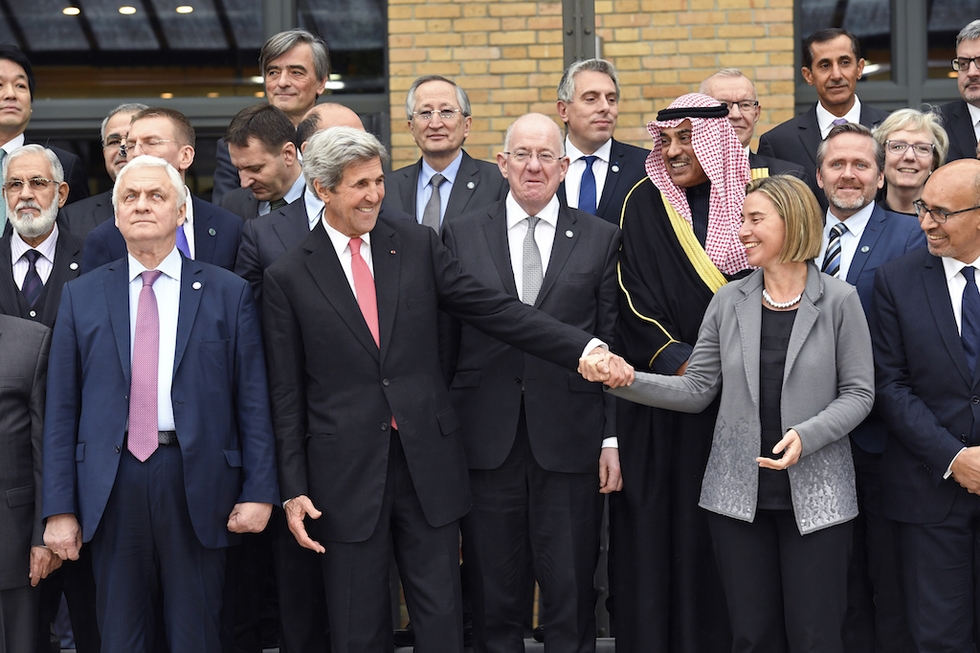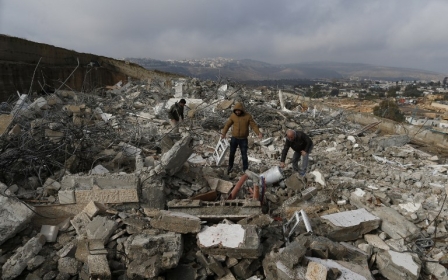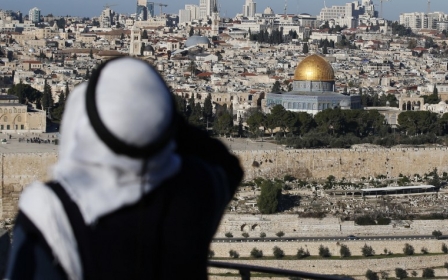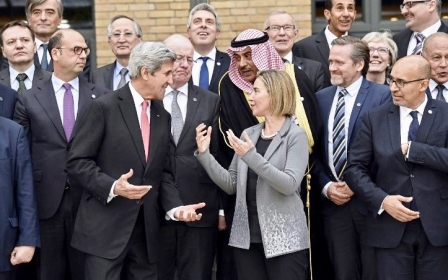UK blocks EU support for Israel-Palestine peace meeting in Paris

The UK has moved to block an EU decision to support the closing statement of the Israel-Palestine peace conference in Paris, a day after it refused to sign the conference's closing statement backing the two-state solution.
The move at the EU's Foreign Affairs Council on Monday, described as "highly irregular" by Haaretz, comes a day after the country refused to sign the closing statement, which was designed to relaunch stalled negotiations between the Palestinians and Israelis over a two-state solution.
Britain said that the statement risked "hardening positions", particularly as neither of the parties affected was present at the conference.
"We have particular reservations about an international conference intended to advance peace between the parties that does not involve them - indeed which is taking place against the wishes of the Israelis - and which is taking place just days before the transition to a new American president when the US will be the ultimate guarantor of any agreement," the Foreign Office said in a statement.
"There are risks therefore that this conference hardens positions at a time when we need to be encouraging the conditions for peace."
Neither the UK Foreign Secretary Boris Johnson or the UK ambassador to France took part in the conference, instead sending a low-ranking diplomat.
According to Haaretz, the concluding statement of the Paris conference called on Palestinians and Israelis to "officially restate their commitment to the two-state solution, thus disassociating themselves from voices that reject this solution,” and to “independently demonstrate, through policies and actions, a genuine commitment to the two-state solution,” while refraining from "unilateral steps that prejudge the outcome of negotiations on final status issues, including, inter alia, on Jerusalem, borders, security, refugees.”
The statement was watered down from the original statement presented by the French on Saturday and made no reference of using the 1967 lines as a basis for negotiations, nor did it call all the participants to consistently distinguish between Israel and the settlements, reported Haaretz.
It also originally called on the Israelis and Palestinians to “disavow official voices on their side" who opposed a two-state solution.
Around 70 countries attending Sunday's talks in Paris agreed on the joint statement which contained no enforcement mechanisms should either side break the agreement.
'Diktat'
Saeb Erekat, an ally of Palestinian President Mahmoud Abbas, welcomed the conference as creating "momentum" towards ending Israel's occupation of the Palestinian territories, which has been ongoing since 1967.
But Israeli Prime Minister Benjamin Netanyahu has repeatedly denounced the Paris conference as another useless attempt at an international "diktat", arguing that only direct Israeli-Palestinian negotiations can lead to peace.
For the Netanyahu government, eight years of frosty relations with the Obama administration culminated with the 23 December United Nations Security Council resolution condemning settlements as a roadblock to peace. The US abstained on the vote, allowing it to pass.
Netanyahu said on Sunday he was waiting for President-elect Donald Trump, who has said there is no politician as pro-Israeli as him, to enter the Oval Office.
The Paris conference was one of the "last spasms of yesterday's world", according to the Israeli premier. "Tomorrow will look different and tomorrow is very close."
Hamas also rejected the outcome of the conference, branding it "absurd"
"The Paris conference is a return to the absurd negotiation approach, which lost the rights of the Palestinian people and gave legitimacy to the Zionist entity on Palestinian land," Fawzy Barhoum, a spokesman for Hamas, said in a statement on Monday.
Hamas rules the Gaza Strip, while the Palestinian Authority led by president Abbas controls the West Bank and is the recognised partner for peace negotiations with Israel.
Barhoum called for the various Palestinian factions to unite on a "national strategy" around the "resistance in defence of our people."
New MEE newsletter: Jerusalem Dispatch
Sign up to get the latest insights and analysis on Israel-Palestine, alongside Turkey Unpacked and other MEE newsletters
Middle East Eye delivers independent and unrivalled coverage and analysis of the Middle East, North Africa and beyond. To learn more about republishing this content and the associated fees, please fill out this form. More about MEE can be found here.




